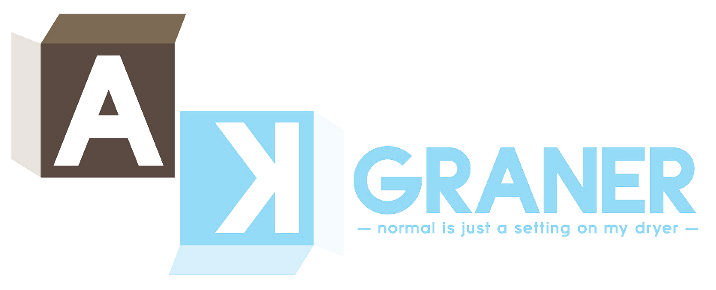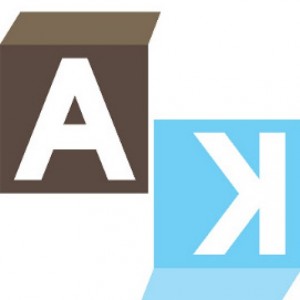How to get involved with Ubuntu Weeks and more.
Many people know about the various online Ubuntu Weeks/Days, but how are they organized? How can the community help? Ahmed Shams (ashams) asks Amber Graner (akgraner) how and where community can get involved. If this sounds like something you would like to help with in total or just one section of the process your help is always wanted and needed. Just let the Classroom Team or any of the Canonical Community Team know and they’ll be happy to get you started with helping plan these amazing and educational online tutorial weeks.
Ahmed Shams: When do you start the invitation/preparation process for participating in events, a week earlier?
Amber Graner: We have checklists that start at 10 weeks prior if there is that much lead time and at 3 weeks, 2 weeks and week of. To see the checklist set up using trello* go to https://trello.com/board/classroom/4e94f7afaef5aa0000a5d2ea. As you can see some dates have been added and other checklist are waiting for dates based on the decisions that will be made at UDS. These checklist are public and anyone can help with any part of the process.
There will also be a generic checklist people can modify to their events along with the checklist for each event which will be added to the /BuildingCommunity wiki pages.
AS: Do you target different instructors for different types of events?
AG: yes, so for say app dev and dev week the mailing lists are different from say open week. Also, we email the instructors who gave sessions for the last ubuntu week/event and see if they are willing to participate in the upcoming event. We also email the derivatives distributions and mailing lists for GNOME and Debian as well if applicable.
I keep a list by week/cycle of instructors and about once a year give stats on who gave the most sessions since the beginning of each event etc., sorta motivates people.
AS: Are those lists public?
AG: No, not yet; however, I can make them public. It was just something I did for my own curiosity. I’ll clean the up and make them public.
AS: Do you have a list of these events we have every release, by date/date-range? Do events have strict dates or ranges, anyway?
AS: The dates are decided at UDS–everything except Open Week as open week is always the week after release week. Also, The UserDays team picks those dates.
AS: Is there a global team to arrange ubuntu online events?
AG: The Canonical Community Team looks at everything that is happening throughout the upcoming cycle and balances it against their schedules and other events taking place in the FOSS community trying to find the best times that don’t overlap with other Canonical or Community events or other big FOSS events, such as OSCON, FOSSDEM etc.
Also one member of the Canonical Community team works on each event for example, currently it is broken out as such: Jorge Castro (jcastro) – Ubuntu Open Week, Daniel Holbach (dholbach) – Ubuntu Developer Week, David Planella (dpm) – Ubuntu App Developer Week, Jorge Castro (jcastro) – Ubuntu Cloud Days and Ubuntu User Days Team – Ubuntu User Days.
Once the dates are set, anyone in the community is welcome to help organize them. I don’t know that everyone knows this, which is why Jorge Castro, myself and others are making the checklists for each event public and creating a generic checklist as well.
Helping organize these Ubuntu Weeks/Days are great ways for the community to collaborate with the Canonical Community Team and get to know the community and the personalities across a diverse range of skills and talents.
Basically, the community is encouraged to touch base with them once the dates for each of those events are announced and say, “Hey how can I help?” or look at the check list and let them know “I’ll do x on the list.”
AS: What you really do during events? Do you change instructors’ status for example?
AG: Nope – Here is what organizers help do; we recruit people for each event, set up the classroom calendar (there is a certain format to follow so Classbot and Lernid will pull the information),but it’s easy to follow and part of the checklist. We blog about the event, follow-up with instructors and post to many social media outlets. Each Instructor/Session Lead is also encouraged to blog and post to their social media streams of choice as well.
Then someone summarizes each day to add to the classroom, Fridge and other sites can pick up the post and crosspost or extrapolate information to post on their sites.
During the event the #ubuntu-classroom-backstage group are their to find instructors if they are missing (classbot lets us know) and if instructors need help we help them out.
AS: What are the current events we have?
AG: Ubuntu Open Week, Ubuntu Developer Week, Ubuntu App Developer Week, Ubuntu Cloud Days (new this last cycle) and Ubuntu User Days
Also, any other event people want to schedule in -classroom they just need to be scheduled with the classroom team. People wanting to schedule events outside those formalized weeks can just just pop into #ubuntu-classroom-backstage or email the classroom team and we’ll help people get them scheduled.
By letting the classroom team know, they can help make sure Classbot logs the channel etc.
We are always looking for people to help with the online events.
AS: So, do you have any task to do during events?
AG:Things like linking the logs when a session finishes, social media’ing during the event to promote it and just keeping -chat from getting too far of topic, etc… Also, sometimes we need to turn into operator stat to voice new people and stuff and someone from backstage just needs to be available unless the instructor says, “They don’t need us, then we relax during those sessions.”
AS: Does this affect how you arrange sessions inside the Week/Day?
AG: No not really, each audience is different, but most days are a couple hundred people, sometimes more, sometime less depending on how well they are promoted.
AS: Should they be promoted more?
AG: Yes, we can promote them enough. The more we get the word out them more people we are likely to reach that we didn’t get before.
Below is the Checklist for Ubuntu Open Week.
Open Week
Initial Preparations and Call for Speakers (10 weeks prior)
Copy old session data from UbuntuOpenWeek/Timetable and UbuntuOpenWeek/Sessions to UbuntuOpenWeek/Previous.
Create empty timetable in UbuntuOpenWeek/Prep
Ask for session leaders and session suggestions
Review UbuntuOpenWeek/Previous and mail previous session leaders if they’re willing to give a session again or have suggestions for topics and speakers.
Ask speakers to add their session to the timetable on UbuntuOpenWeek/Prep and also add some session information.
Mid Cycle Preparations (3 weeks prior)
Draft announcement.
Update UbuntuOpenrWeek and UbuntuOpenWeek/Sessions with data from UbuntuOpenWeek/Prep, update dates, etc.
Talk to people on ubuntu-translators@lists.u.c and loco-contacts@lists.u.c if they are willing to help out with translating questions and answers. Ask them to add themselves to the bottom of UbuntuOpenWeek.
Add sessions to Ubuntu Learning Calendar (NEVER USE RECURRING EVENTS FOR ANYTHING OR ALL DAY EVENTS!)
Install Lernid and see if the sessions all turn up properly.
Mail Claire Newman and schedule Mark’s session
Final preparations (2 weeks prior)
Ask people to microblog using the #uow hashtag
Send mail to all speakers about the event, how things work.
Post on the forums
Ask a forums moderator to sticky the threads.
Mail loco-contacts@lists.ubuntu.com @lists.u.c
Announce via blog, get it on planet ubuntu
Double check Mark’s session with Claire Newman
Blog summary of each day (Week of)
Monday
Tuesday
Wednesday
Thursday
Friday
Mention the start of each day a few minutes before session start
in #ubuntu-devel, #ubuntu-locoteams, #ubuntu and #ubuntu+1, #ubuntu-community-team, #ubuntu-women-project and others people as people want to help promote.
* trello boards are being tested during 12.04 cycle to see if this is a good tool for community collaboration.



